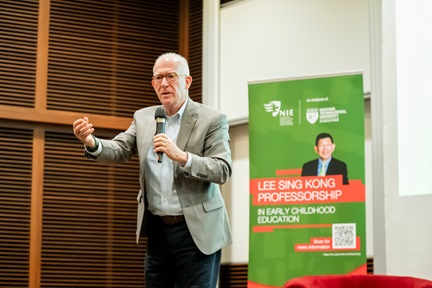Forum: Establish right conditions that support children’s cognitive development
A recent local study published in Early Childhood Research Quarterly links the amount of time spent in childcare beyond 40 hours with lower scores on literacy and numeracy assessments among 2,330 children aged three to six (English and maths scores suffer when pre-schoolers spend over 40 hours a week in childcare: Study, Jan 11).
In addition to triggering parental anxieties, discussions around how long children should attend childcare risk detracting from what matters for children’s development.
Early childhood education (ECE) is important in a child’s life. It provides structured learning, social interaction and a safe environment for growth. A complex system of factors, going beyond the number of hours at childcare, influences the effects of ECE on child development.
These factors include the staff-child ratio, the learning environment, quality of teacher-child interactions, and whether the programme employs an evidence-based curriculum with teachers trained in early childhood development.
In the article, the researchers acknowledge their assessment of ECE quality was inadequate and depended on the type of ECE operator. This is a crucial point, as it is unclear whether the type of operator is related to what constitutes quality programming.
Importantly, the findings of the study are correlational, meaning the study can identify associations between variables but cannot determine cause and effect. We cannot say that more hours in childcare cause poorer academic outcomes. It is a leap to conclude that hunger, boredom and stress that children might experience when attending more than 40 hours per week explain assessment scores. These factors were not examined in the study.
Rather, children who spend substantially more time in childcare may differ in significant ways from those who spend less time in terms of socio-economic background, parental engagement and resources at home, and how their parents approach parenting.
Each of these factors is associated with child outcomes and may be the underlying cause for the correlation between assessment scores and hours spent in childcare.
Instead of fretting about the number of hours in childcare, parents, educators and policymakers should focus on establishing the right conditions that support children’s cognitive development. Providing parents with knowledge, resources and tools can help them create nurturing home environments to support their children’s literacy and numeracy development through everyday activities, rich conversations and shared book reading.
Decades of research show high-quality ECE programmes are characterised by well-trained teachers, evidence-based, developmentally appropriate curricula, and a rich learning environment that promotes language and cognitive development through play, structured activities and opportunities for interaction. There is robust evidence about the positive role of high-quality ECE programmes on child outcomes.
As the authors rightly suggest, more research is needed to better understand the complex relationships between different ECE models and children’s development. Future studies must consider the effects of time spent in childcare together with other important factors, such as the quality of ECE programmes and the broader socio-economic context. Doing so will give parents, educators and policymakers more meaningful insights to guide their decisions.
Ng Ee Lynn
Assistant Centre Director
Early Childhood Education Research
Centre for Research in Child Development (CRCD)
National Institute of Education
Nanyang Technological University
Together with Dr David Muñez, Dr Pierina Cheung, Dr Khng Kiat Hui from CRCD


.tmb-listing.jpg?Culture=en&sfvrsn=41a4c4ea_1)


